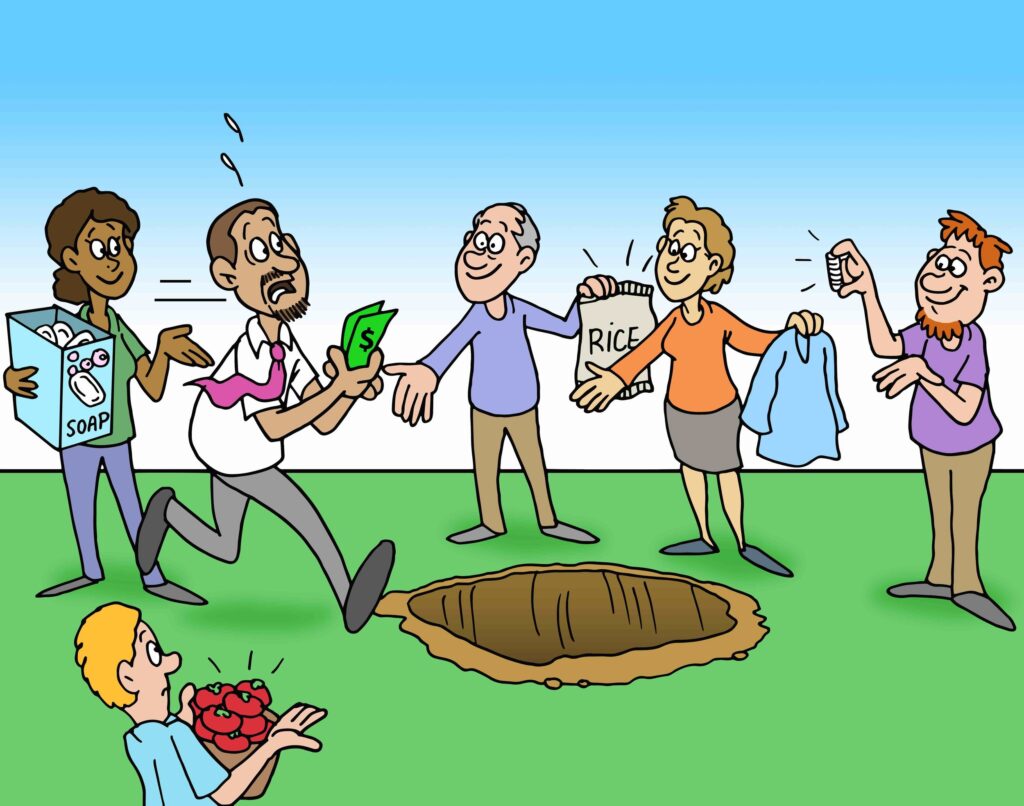It infuriates me to hear about “gurus” who take advantage of others in their most vulnerable states during their spiritual journey. I’m talking about cults and self-proclaimed saints that wear the sacred garb but go on to assault their victims at all levels – physically, mentally, emotionally, financially, and spiritually. There are countless horror stories and documentaries that highlight this maliciousness. There’s only so much I can say about intentional spiritual abuse.
But there’s a lot more that I can offer around the other angle: unintentional spiritual abuse.
It’s the kind where the leader or teacher has good intentions in their heart, but their own traumas or world views get in the way of their otherwise noble cause.
What are examples of unintentional spiritual abuse? And how does it impact us?
I’ll be sharing a personal example as I walk you through this article.
I was part of a spiritual group that started as deeply enriching, with great thought-provoking discussions and healing opportunities. However, as time progressed and the materials we studied became more nuanced, our teacher’s shadow revealed itself.
We began to experience spiritual shaming.
What’s that?
It can take many shapes and forms, some of which may include judging others for not making more progress, not meditating more, not acting spiritually in challenging moments, etc. It can also look like mockery or dismissal of one’s spiritual development, things like “is that what your books have taught you?”.
It can become more grave, justifying certain unethical or uncomfortable actions as a part of the learning experience. In other words, gaslighting one’s emotions, pains or problems by using philosophy.

In this group that I participated in, spiritual shaming was justified as a way to “overcome the ego”.
It was considered a tool. This didn’t resonate with me. And the longer it happened, it felt like I was being gaslit. I fundamentally believed that I had the right intentions and in due course of time would have more alignment of mind-body-spirit, but that shame wasn’t helping me get there any faster.
Why is spiritual shaming dangerous in this spiritual journey?
Spiritual growth is our inherent nature, so aspiring for more spiritual development is natural. But there’s a difference between aspiring for growth versus shaming ourselves for not being better.
Let me share an analogy to help bring the point home.
Imagine you’re in school with a final exam tomorrow morning. However, instead of studying, you stay up late and play video games or binge-watch a TV Show (I was that person – Grey’s Anatomy was my escape).
Because of your actions, you end up failing the exam. If you reflect on your actions, it can inspire you to do better next time and truly break free from the behaviours that got in your way.
However, if your mind starts saying things like “I’m pathetic, I’m a failure, I’m incapable of success”, you start believing YOU are the problem.

And then, any time in the future when you encounter anything remotely close to yourself slacking, you further spiral into self-deprecation. You may eventually give up hope that you’re capable of changing or that things will ever get better for you.
Do you notice how disempowering and vicious shame is?
This is especially dangerous in the spiritual context, especially when it comes from a leader or mentor. Because ironically, on this path of finding yourself, there’s a vicious critic meeting you at every step, taking a jab at your flaws, failures and deeming you never good enough. It’s the whole philosophy of “sin” used as a means to guilt-trip us into being better (but ironically, never being able to get there).
Also, unfortunately, sometimes that critic is our own mind! And we spiral into narratives that it plays out against us, once again, rendering us hopeless, unsalvageable, and dejected.
3 tips to help you get out of a spiritually abusive situation
It took me nearly a year to admit how bad I felt after each group meeting and that I wasn’t benefitting from the sessions anymore.
It took me almost another year to muster the courage to step away. Conflicting thoughts engulfed me – I could see my teacher’s noble heart, but the disempowerment was also undeniably painful. And every time I had thought of leaving, I wondered if I was just being weak or “too sensitive”.
I also felt quite lost, not fully connecting with the approach but also unable to understand why not.
Tip #1 – It’s okay to feel lost.
I am grateful that I ultimately gained access to other resources, teachers and tools that allowed me to finally come to terms with understanding what felt more true.
If you’re conflicted and experiencing spiritual gaslighting, my recommendation is to give yourself permission to explore other avenues and schools of thought.
I can’t even begin to recount how many readers and clients have felt bad for not trusting their religious institution or for “questioning” God. And yet, sometimes, that’s exactly what we need to do to help us understand that what’s happening is NOT normal.
For inspiration, you can listen to this podcast episode, where my friend and coach Sonia Guzman shares her brave story of leaving behind an abusive marriage that used religion to “tame” her.
I’ve also shared some more encouragement around this topic in the following Instagram reel:
Tip #2 – Spiritual philosophy has a time and place, and is usually NOT meant to be used as the first choice for healing.
The tools and resources I began learning outside the group helped me understand something very clearly: spirituality is not meant to dismiss our pain.
While prayer, meditating and reading spiritual scriptures are great methods to come out of the internal enemy (defeated mind), most of the times, they alone aren’t enough to fight the external enemy.
You cannot override your biological needs for safety, connection and emotional well-being to be “spiritual”.
If hearing ideas about karma, detachment, soul contracts, etc make you feel worse, chances are, you’re experiencing spiritual bypassing.
So the next time you cringe or feel worse, ask yourself, what part of me needs attention first?
Physical, mental or emotional?
Once you attend to those, you can make more sense of the spiritual context.
In other words, let’s stop trying to learn more “bookish”, idealistic teachings as a way to cope with life’s challenges. Instead, I would invite you to focus on adding other types of modalities to your toolkit that help you build mental and emotional strength first, such as somatic work, parts work and nervous system regulation.
Tip #3 – Use self-compassion to rebuild confidence.
Sure, we can all meditate more, but what if we asked ourselves why we haven’t been able to? A lens of self-compassion may lead to insights such as:
I feel floaty/spaced out and that scares me.
Or, vivid scenes of my childhood trauma resurface and I don’t know how to deal with them.
Or even something as simple as – meditating isn’t my jam.

Can you see how self-compassion helps us understand our resistance/hiccups better, versus banishing them at face value?
In this way, we get to work to eliminate some of the obstacles and create new approaches, tools and frameworks to help ourselves bridge any spiritual plateau that we may be experiencing. Versus getting self-critical or believing what others say about us not being spiritual enough.
Let’s remember that everything we learn or hear about in this journey just gets to be a tool — it either propels us forward or redirects us towards the next thing that’s probably more aligned.
Now, let’s talk about giving yourself grace as you learn to heal your relationship with spirituality after having spiritual abuse inflicted on you.
4 ways to deal with aftermath of spiritual abuse
After I finally stepped away from the group, I felt battered. My mind went into self-preservation mode. For months, I put a complete stop to any kind of spiritual content or focus.
This was important, because I had been repeatedly told that I wasn’t doing enough for my journey, and if anything, I was burned out from always being in a contemplative, introspective state.
NOT doing anything was healing. NOT trying to be better was nourishing.
Tip #1 – Don’t worry about jumping into another program, podcast or book.
That is often a trauma response – trying to fix ourselves instead of recognizing we weren’t the problem. At other times, we may feel compelled because we fear we’ll miss out or “waste precious time”. That’s far from the truth.
Give your mind space to recover. if anything, go be more human! Do things that bring you joy and don’t require something to be achieved, other than the sole purpose of having fun.
Interestingly, this was the time I gravitated as far away from healing as I could, only to find myself healing in other ways. I started gardening that year – and somehow, nature healed me. I also started playing chess, which became a healthier hobby for me than trying to get dopamine hits from constant breakthroughs.

All of this helped me see, many months later, that my spiritual journey was mine – it was my choice to walk the path consciously or to simply let life guide me through it when I didn’t want to actively engage.
It also helped me appreciate something: you couldn’t take true spirituality out of me. Those seemingly human moments where I was engaged in mundane things, were also moments where I connected with myself more deeply than ever.
No one tool could define my journey. I was the means and ends to my journey, not the practices, nor the books or teachers.
Tip #2 – Consider getting professional support to deal with the trauma of this experience.
Whatever be your experience: feeling clouded by shame, infuriated by the abuse, gaslit and under-confident, depressed or something else – please consider professional therapy if you have the means and would like to move on from the emotional damage. Even if not with a therapist, maybe there’s a trusted loved one that you can lean on. Just make sure they support you and don’t further fuel your pain.
I shared my experience over and over again with some of my close friends – they began to validate that I wasn’t crazy for “quitting”. This was a toxic environment that had taken a toll on how I looked at myself and my journey.
It took me a long, long time from that point to get back into meditation. And that happened thanks to a more trauma-informed mentor who showed up when my mind and body were truly ready for it. This time, it felt like a breath of fresh air, as I navigated my mental landscape in whatever way felt organic to me, all the while being held with lots of compassion and divinity for moments where my resistance showed up.
Tip #3: Don’t put your mentor on a pedestal.
As I look back on what happened in that group, I don’t feel animosity towards the teacher or events. But I see the importance of testing the waters with whoever you work with next.
Unless you work with someone “enlightened”, you are bound to meet the person’s shadows.
IMPORTANT: I have written some of the recommendations in this section with the assumption that you may eventually feel ready to resume self-development work in some capacity, at some point in time. Unfortunately, for some people, spiritual abuse can lead to a complete shutdown from their journey.
I have full empathy for you, if that’s where you’re at with your journey. I just make these assumptions more freely because I guess someone who has completely shut down the doors to their spiritual journey will not be reading this article. Ultimately, if you don’t feel ready or have any sense of desire to work with someone else, I honour that and support your decision.
Okay, back to the tip I’d like to offer here. A part of the problem for most of us is that when we surrender to our guides, we also surrender our personal power.
There is beauty in trusting a teacher wholeheartedly, but when we meet the teacher’s shadow, it can create conflict.
Having discernment is important – when something doesn’t feel right to you, please allow yourself to listen to that feeling. We can figure out the “why” later – but in the moment, it’s important to create boundaries and space for you to not take on something that may be potentially detrimental in the future.

It’s also important to see that our mentors and guides are very much human and evolving along with us. I know as a matter of fact how much I’ve evolved in my thinking over the past decade: I’ve had to take down hundreds (seriously, hundreds) of my old Instagram posts and rewrite dozens of articles on my website because the ideas I shared were no longer in alignment.
Tip #4: Work with someone that is open to feedback.
A guide’s role isn’t just to teach you what they know – it’s to teach you in a way that you can learn best. And we’ve already talked about how they’re a work in progress too – so it’s important for that humility to be a part of their work with us. We are just as much their mirrors, as them ours.
So if you’re not resonating with something, notice how your guide reacts to that when you share. Do they honour your boundaries? Are they willing to adapt a different approach? Do they move at your pace and allow your nervous system to feel safe in their presence?
These are all important questions to carry with you onto the next leg of your journey, after you’ve taken lots of time to heal from and give yourself space from the past.
I share some more ways to “test” if someone is the right fit for your healing journey, in the following Instagram reel:
Concluding Thoughts
Spiritual abuse is one of the many dark sides of this spiritual journey. It misguides us, breaks our mental confidence, and can throw us off the path altogether. I have met people at different stages of their journey of recovering from spiritual abuse. And what brings me hope is my own evolution from it. The fact that I can write about all this today without feeling triggered makes me smile.
If you’ve experienced any degree of spiritual shaming, please know that my heart aches for your healing. You are not alone and this was not okay to have happened to you. If at any point you seek a professional support system, please know that I am here and in your service.

Vasundhra is the Founder & Writer of My Spiritual Shenanigans. After seeing 11:11 on the clock one fateful night, her life turned around. Ever since, she has been blending modern psychology and ancient spirituality, to help herself and people around the world elevate the quality of their lives.
Ready to take your healing deeper? Sign up for her for self-paced classes bundle and/or for personalized 1:1 coaching.




